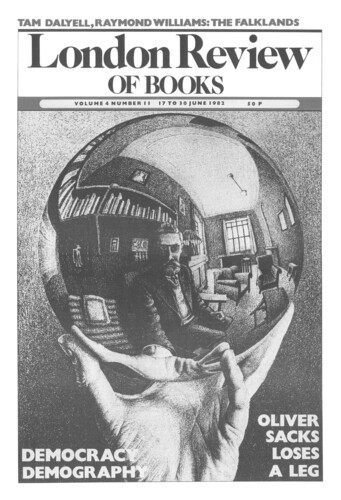The Welfare State Intelligentsia
R.E. Pahl, 17 June 1982
It is a common post-Enlightenment assumption that taking thought will help to make the world a better place. Gathering information, presenting it clearly, and then showing the relevance for policy, has a firm place in British intellectual life, stretching well back into the 19th century, as Philip Abrams showed in his masterly book The Origins of British Sociology. Equally, a concern to reduce or to ameliorate poverty is a strong tradition running from Booth, Rowntree and the Webbs to Titmuss and Townsend. Classically, information is gathered with such thoroughness that ‘the facts’ are said to speak for themselves, and ameliorative policies become an obligation which no humane society can avoid and still hope to hold its head high in the civilised world.

